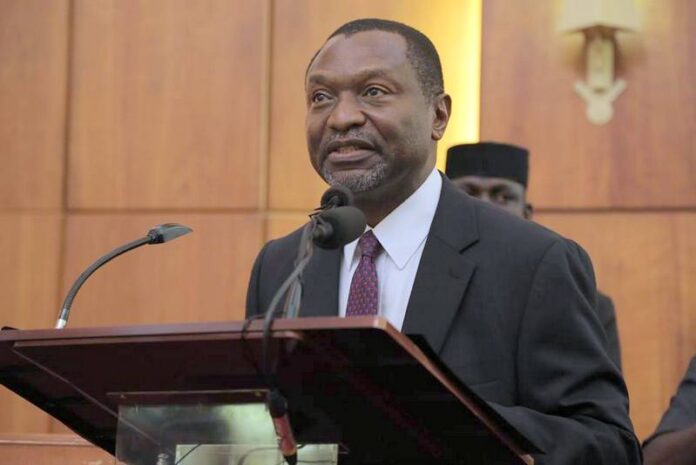The Federal Government of Nigeria has said that in spite of its programmes aimed at creating jobs, unemployment rate continues to rise due to rise in population growth.
The Minister of Budget and National Planning, Sen. Udoma Udo Udoma said this on Thursday at the Public Presentation and Breakdown of 2019 Federal Government’s Budget..
Udoma explained that the Buhari administration had met up with its promise of creating millions of jobs, but the quantum of people entering the market each year affects unemployment data.
The minister was reacting to a report released by the National Bureau of Statistics (NBS) on Wednesday which said that unemployment rate had risen from 18.8 per cent in 2017 to 23.1 per cent in 2018.
“Employment growth usually slows down during recession and takes some time to recover.
“It is not therefore, surprising that the National Bureau of Statistics data shows that employment and unemployment remains high in Nigeria.
“However, it must be emphasised that what the NBS report shows is not that jobs have been lost.
“It actually shows that there has been a significant job creation, but that the level of growth in new jobs is less than the number of new entrants into the job market, hence a net increase in unemployment rate.
“We expect more diversified and inclusive growth over the medium term and reduction in the rate of umeployment, as we continue to implement the policies and programmes of the ERGP,” he said.
Udoma said that the government was making efforts to create more jobs through the private sector by providing single digit loans to small and medium enterprises.
Speaking on the budget, the minister said that it was tagged “Budget of Continuity” because the focus would be on completing infrastructure projects initiated whether by the past or present administration”.
He said that the proposed N2.03 trillion under capital expenditure, would go into completing projects in the transportation, power, health, housing, works, water resources and education sectors.
Furthermore, Udoma said that to complete these projects, the Federal Government would improve on its domestic resource mobilisation.
He added that the government would sustain its efforts in improving public financial management through use of the Treasury Single Account (TSA) and the Integrated Payroll and Personnel Information System (IPPIS) among others.
President Muhammadu Buhari presented N8.83 trillion budget for 2019 before the joint sitting of the National Assembly.
The fiscal plan for 2019 is smaller compared to N9.12 trillion budgeted for 2018.
The proposed budget shows that N2.14 trillion will be spent on debt servicing, while capital expenditure is expected to gulp N2.03 trillion.
Government also intends to spend N4.04 trillion on recurrent expenditure and N492.36 billion on statutory transfer in the course of 2019 fiscal year.
The fiscal policy is predicated on crude production of 2.3 million barrels a day, an oil price of 60 dollars per barrel and an exchange rate of N305 to the dollar.
Population growth affecting unemployment
RELATED ARTICLES




